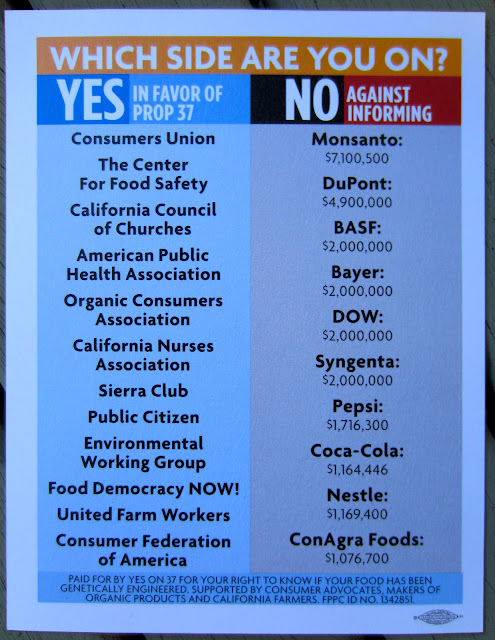Yes, avocados, consistently, have the least amount of pesticide residue on them but beware of conventional apples! To find out the status of the rest of he fruits and vegetables, take a look at this years list: The Dirty Dozen and The Clean Fifteen, 2014
Organic produce can still be more expensive, even though some stores actually have certain items labeled with the same, or even lower prices than their conventional varieties. This is wonderful news and it's due to the higher and higher demand for organic foods, which allows for the cost to come down. Better yet, if you visit your local farmers market, chances are, you'll be able to pick up all of your favorites for a lot less and, most likely, they will be organic, or at least pesticide-free! Still, for those days when you can't find organic varieties or they are just too expensive for your budget, here's how to make a decision as to when to spend the extra dollar and when it's less of a worry to go with the conventional version because the have less pesticides on them.
….the lists are out and the fruits and vegetable on them are very similar to those on the lists from previous years so, if you've been shopping with them in mind, you will not need to get used to a lot of different items.

The Dirty Dozen*, Plus...
1. Apples
2. Strawberries
3. Grapes
4. Celery
5. Peaches
6. Spinach
7. Sweet Bell Peppers
8. Nectarines (imported)
9. Cucumbers
10. Cherry Tomatoes
11. Snap Peas (imported)
12. Potatoes
13. Hot Peppers
14. Blueberries (domestic)
15. Lettuce
16. Kale & Collard Greens
 ...and The Clean 15
...and The Clean 15
1. Avocados
2. Sweet Corn**
3. Pineapples
4. Cabbage
5. Sweet Peas (frozen)
6. Onions
7. Asparagus
8. Mangoes
9. Papayas
10. Kiwi
11. Eggplant
12. Grapefruit
13. Cantaloupe
14. Cauliflower
15. Sweet Potatoes
*NOTE: Forty-eight produce items were examined by the Environmental Working Group (EWG) for pesticide residue. The "Dirty Dozen" is simply the top 12 of that list, meaning, highest in pesticide residue and the "Clean Fifteen" are those starting at the bottom of the list, with the least amount of chemicals left on them.
**If you live in the U.S. almost all corn (~ 85 %) you will find is Genetically Modified (GMO). Unless it's certified organic, you won't know whether what you're buying has or hasn't had its DNA "tempered with". Therefore, even though they're on the "clean" list, I don't recommend conventional corn....due to a lack of regulations.
There are a lot of people working really hard on changing this and make it into a law to label GMO produce. Please take your time and do some research and consider signing petitions for the sake of your and the planet's health. There are a number of them to sign at:
http://www.centerforfoodsafety.org/take-action#
http://www.centerforfoodsafety.org/take-action#
Produce list reference: http://www.ewg.org/foodnews/list/










